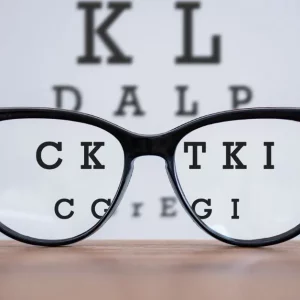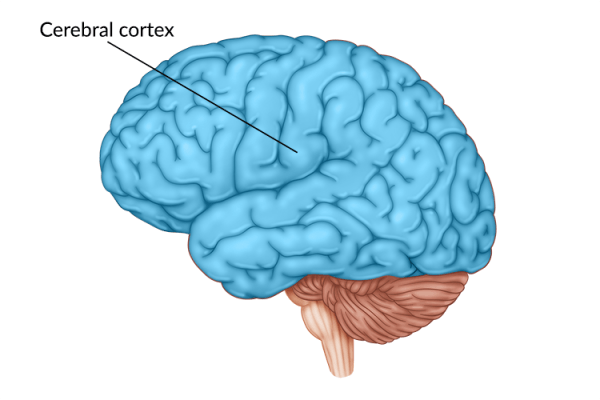The ability to make efficient and rational decisions is an essential part of everyday life. When this function is impaired, it can make it difficult to perform daily tasks and live independently. Fortunately, survivors can improve their decision-making after brain injury with a proper rehabilitation plan and support from loved ones.
This article will discuss the causes of impaired decision-making after brain injury, and the most effective ways to boost recovery and maximize your independence.
Use the links below to jump straight to any section:
- How a TBI affects decision-making
- Contributing factors of impaired decision-making
- Can decision-making skills improve after TBI?
- Techniques to help you make decisions after TBI
How A TBI Affects Decision-Making
Executive function refers to a variety of cognitive skills that help us to learn new information and manage daily activities such as planning, organizing, and multitasking. Executive function also includes high-level skills such as self-awareness, understanding social cues, and making decisions with good judgment.
All executive function skills are housed in the frontal lobe, primarily within the foremost section referred to as the prefrontal cortex. Therefore, damage to the frontal lobe or prefrontal cortex after a brain injury can impair an individual’s ability to execute these skills, referred to as executive dysfunction. When executive function is impaired, individuals often have difficulties with making and carrying out decisions.
Researchers identified several specific sections of the frontal lobe that play a crucial role in decision-making, including:
- Dorsolateral Prefrontal & Anterior Cingulate Cortex: are associated with cognitive control skills, including response inhibition, conflict monitoring, and switching. These regions of the frontal lobe help with the ability to think before taking action or acting on certain impulses.
- Orbitofrontal, Ventromedial, & Frontopolar Cortex: are associated with value-based decision-making, which can include logical or rational thinking. These sections of the frontal lobe allow you the ability to choose between two appealing options.
When these regions of the frontal lobe sustain damage, it can severely impact the ability to make decisions, among other cognitive functions. However, decision-making is a complex process that involves many other areas of the brain, including the hippocampus (responsible for memory) and Wernicke’s area (responsible for language comprehension).
Contributing Factors of Impaired Decision-Making After Brain Injury
There are many contributing factors that can result in executive dysfunction and impair decision-making after brain injury, including:
- Amnesia: the inability to remember information, caused by damage to the hippocampus. This can impact decision-making as both new information and existing memories are reflected upon to make an appropriate decision.
- Receptive aphasia: caused by damage to Wernicke’s area, this condition involves difficulty with comprehending spoken language, among other language challenges. This can create problems with understanding verbal questions, such as “Would you like to go to the park, library, or store?”, subsequently making it impossible to make a decision.
- Adynamia: a condition involving weakness and a lack of motivation after brain injury, which can interfere with decision-making skills. Adynamia may seem like laziness or depression but is often a result of frontal lobe damage. It can decrease motivation and the desire to initiate or complete an activity. Individuals with adynamia may struggle with motivation to make and execute decisions.
- Attention Deficits: may occur as a result of a frontal lobe brain injury. Attention problems are a common secondary effect that can make it challenging to complete tasks, maintain conversations, and make decisions. Some individuals may have difficulty focusing long enough to think clearly and make a rational decision. Others may be able to make a decision, but may lose focus before being able to actually execute the decision.
- Anosognosia: a condition that involves a lack of insight after brain injury, which can also affect decision-making after a frontal lobe injury. The ability to recognize, understand, and reflect on a situation is important to be able to make rational decisions. Lacking the awareness of oneself or others can lead to poor judgments and hasty decisions.
To address the root cause of impaired decision-making after brain injury, it’s important to consult with your doctor and obtain a proper diagnosis. With a proper diagnosis, you can embark on a rehabilitation regimen that can help you improve executive function skills.
Can Decision-Making Skills Improve After TBI?
Yes, it is possible to improve your decision-making skills after brain injury. After a TBI, many of the neural pathways necessary to execute functions may be damaged or destroyed. However, the brain has the ability to heal and rewire itself through neuroplasticity.
Neuroplasticity helps strengthen existing neural pathways and create new ones. With stronger neural connections, the brain is able to execute functions properly, including decision-making.
To stimulate the brain and activate neuroplasticity, you must engage in high repetitions of cognitive exercises. Practicing a skill consistently helps the brain recognize that skill and strengthen its neural pathways. Therefore, massed practice is crucial in order to stimulate neuroplasticity as much as possible and maximize your chances of restoring cognitive function.
One of the best ways to get started with high repetition of cognitive exercises is to work with an occupational therapist or speech-language pathologist (SLP). Both professionals can provide you with cognitive exercises to improve your decision-making and other executive function skills. They can also make detailed assessments of your ability level and provide you with a more suitable rehabilitation plan.
However, to further maximize your chances of recovery, it’s important to maintain a proper exercise regime at home. Exercising in between your therapy sessions is crucial to stimulate the brain and keep neuroplasticity activated. To boost your motivation, you can use the CT Speech and Cognitive Therapy App.
Designed by two SLPs, the CT App provides access to over 100,000+ cognitive exercises that you can practice from anywhere with a smartphone or tablet. It starts by assessing your current ability level and then assigns exercises tailored to your goals. The CT App is a great way to achieve high repetition of cognitive exercises and improve your decision-making skills after brain injury.
Techniques to Help You Make Decisions After TBI
Though improving your decision-making skills can be challenging, there is hope for recovery. In addition to cognitive exercises, there are other techniques that can help you make rational and clear decisions after a brain injury.
This can include a combination of the following:
1. Address the Root Cause
Impaired decision-making can be caused by a variety of factors including difficulties with language comprehension, adynamia, or attention deficits. To improve these skills, it’s important to work with a therapist and address the root cause first. For example, you may discover that your memory was affected by a TBI, and is interfering with your ability to retain information and make decisions. In this case, improving your short-term memory skills first is necessary in order to improve decision-making skills.
2. Narrow Down Your Options
After addressing the root cause, you may begin to see improvements and start making decisions on your own. When this happens, it can be easy to feel overwhelmed by all the choices you have to make, especially with important decisions. To help reduce feelings of stress and becoming overwhelmed, it can help to narrow down your options. Having fewer options, such as 2-3, can help you manage tasks better and combat feelings of uncertainty. If you are able, try to narrow down the options on your own. However, it may also be helpful to request that your close friends and family provide a couple of options for you to choose from, rather than leaving questions open-ended.
3. Set Time Limits
Some individuals may dwell on the various options they are presented with, however big or small. When this occurs, it helps to set limits that allow you an opportunity to make a decision in a timely manner. For instance, if you are placing an order, set a timer on your phone. When it goes off, order what you feel sounds best. This can encourage you to make quick and decisive decisions.
4. Slow Down
For some individuals, it can be tempting to act impulsively and make inappropriate decisions. To help combat impulsive decision-making after brain injury, it helps to create different habits. For example, before agreeing to a decision, you can try waiting for at least five minutes, and think of the pros and cons. Take your time and do not rush, even if others are waiting for you to make a decision. If it is an especially important decision, consider writing down your options and rationale before making a final choice.
5. Seek Advice
Lastly, as you improve your decision-making skills, be sure to seek advice from trusted friends and family members. Making decisions after a brain injury can be challenging, and the weight of the decision (such as how important or life-changing it is) may add to the challenge.
To help lower the pressure of making a decision, ask a loved one to help you analyze it. They can help you make a pros and cons list or give you their honest opinion. Sometimes seeing things from another perspective can help lighten the load and ease your mind.
Following these techniques can help you make appropriate, rational decisions in a timely manner. A neuropsychologist may also be able to provide you with more personalized solutions to help you improve your decision-making after brain injury.
Improving Decision-Making After Brain Injury
Impaired decision-making after brain injury can make it challenging to navigate everyday life and make the appropriate choices. Fortunately, executive function skills can be improved by having a consistent rehabilitation plan.
We hope this article helped you understand how a brain injury can affect decision-making skills, and the best ways to maximize your recovery.










